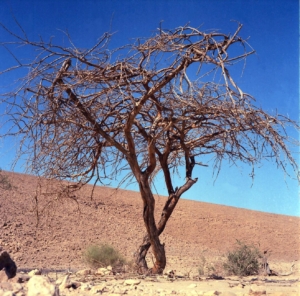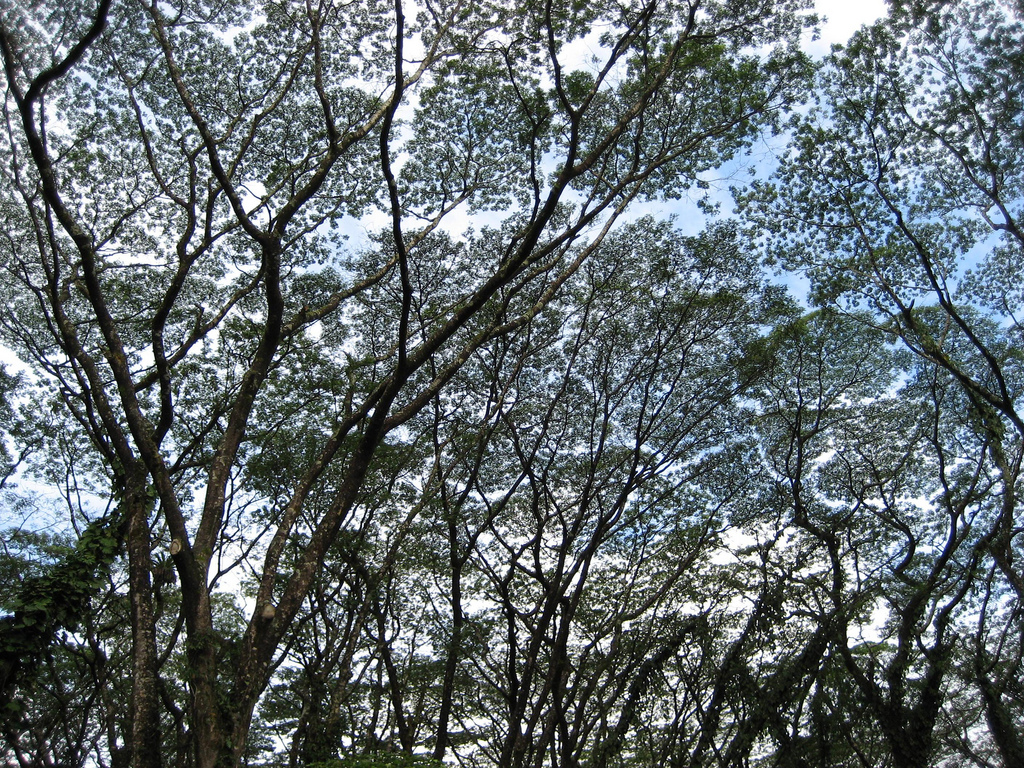| Arabic | Hebrew | English |
|---|---|---|
لتكن مشيئتك إلهنا واله أجدادنا, تقبل تضرعاتنا, أنت الذي جعلتنا مسئولين عن أفعالنا, احيي الشجرة التي غرسنا, لتنمو وتثمر ثمار سلام. |
יהי רצון מלפניך אלהינו ואלהי אבותינו שתתקבל תפילתנו. אתה שהורית לנו אחריות למעשה ידינו, השרש עץ זה שנטענו. מי ייתן ויצמח להניב פירות של שלום. |
May it be Your will, our god and god of our ancestors, who has made us responsible for the deeds of our hands, that this tree will live and grow and bear fruit in peace; |
من هو الإنسان الذي يهوى الحياة ويحب كثرة الأيام ليرى خيرا… اطلب السلامة واسع وراءها. (تهيليم). فليكن غرس هذه الشجرة, بأرض قدسك تذكار لحفظ قولك: “إذا حاصرت مدينة أياما كثيرة محاربا إياها لكي تأخذها فلا تتلف شجرها بوضع فأس عليه. انك منه تأكل.فلا تقطعه. لأنه هل شجرة الحقل إنسان حتى يذهب قدامك في الحصار” |
חזק את ידי החפץ חיים, אוהב ימים לראות טוב… בקש שלום ורדפהו (תהלים לד) כדי שמעשה נטיעת עץ זה, בארץ קודשך, יזכיר לנו לשמור את דברי תורתך: כִּי־תָצוּר אֶל־עִיר יָמִים רַבִּים לְהִלָּחֵם עָלֶיהָ לְתָפְשָׂהּ לֹא־תַשְׁחִית אֶת־עֵצָהּ לִנְדֹּחַ עָלָיו גַּרְזֶן כִּי מִמֶּנּוּ תֹאכֵל וְאֹתוֹ לֹא תִכְרֹת כִּי הָאָדָם עֵץ הַשָּׂדֶה לָבֹא מִפָּנֶיךָ בַּמָּצוֹר; (דברים כ:יט) |
May this tree, which was planted in Your holy land by the hands of those who desire life by demanding peace and pursuing peace in Your great and holy Name[1] Psalms 34 remind us to keep the words of Your holy Torah concerning trees: Even in time of war “you must not destroy the [fruit] trees by wielding an axe against them; for you may eat of them, but you must not cut them down; Are the trees of the field human beings, (able) to come against you in a siege?”[2] Cf. Deuteronomy 20:19. |
لان التوراة, هي شجرة حياة لممسكيها والمتمسك بها مغبوط. طرقها طرق نعم وكل مسالكها سلام (ميشلي) |
שכן התורה, עֵץ חַיִּים הִיא לַמַּחֲזִיקִים בָּהּ (משלי ג:ח) דְּרָכֶיהָ דַרְכֵי נֹעַם וְכָל נְתִיבוֹתֶיהָ שָׁלוֹם (משלי ג:יז) | |
כפרוש ענפיו של עץ זה, כן תפרוש עלינו ברכת שלומך. טע בנו אהבת האדם ועזור לנו ולשמור על זכויות כל תושבי ארץ קודשך. עזור לנו לשקוד “על פיתוח הארץ לטובת כל תושביה”, ולכונן בה החירות, הצדק והשלום לאור חזונם של הנביאים המשותפים של היהדות, האיסלאם, והנצרות. |
As this tree spreads its branches, may You spread Your blessings over this Land, helping us ensure that justice and human rights abound for all her inhabitants as we foster “the development of the Land for the benefit of all its inhabitants;”[5] Cf. The Declaration of Independence of the State of Israel a Land blessed with freedom, justice, and peace as envisaged by the prophets recognized by Judaism, Islam, and Christianity. | |
بامتداد أغصان هذه الشجرة, مد علينا نعمك وسلامك. ازرع بنا محبة الإنسان وساعدنا لحفظ حقوق الناس على أرضك. ساعدنا لان نحرص على” تطوير الأرض لمصلحة سكانها”, لننشر بها العدل ونحقق الرؤية “دولة إسرائيل, تنشأ على أسس الحرية, السلام, بحسب رؤيا أنبياء إسرائيل” |
כפרוש ענפיו של עץ זה, כן תפרוש עלינו ברכת שלומך. טע בנו אהבת האדם ועזור לנו ולשמור על זכויות כל תושבי ארץ קודשך. עזור לנו לשקוד “על פיתוח הארץ לטובת כל תושביה”, לכונן בה צדק ולהגשים את התקווה הציונית: “מדינת ישראל תהא מושתתה על יסודות החירות, הצדק והשלום לאור חזונם של נביאי ישראל” (הכרזת העצמאות של מדינת ישראל) |
(A variation:) As this tree spreads its branches, may You spread Your blessings over this Land, helping us ensure that justice and human rights abound for all her inhabitants as we fulfill the Zionist dream of creating a State of Israel that “will foster the development of the country for the benefit of all its inhabitants; [A nation] based on freedom, justice and peace as envisaged by the prophets of Israel…”[6] Cf. The Declaration of Independence of the State of Israel |
أرشدنا إلى سبل السلام, وافتح أعيننا لنرى صورة الله بالإنسان, أيا كان, يهوديا, مسلما أو مسيحيا, إسرائيليا أو فلسطينيا. |
הדרך אותנו בנתיבות שלום, וכוון עינינו לראות את צלם האלהים שבכל אדם בין אם הוא יהודי, מוסלמי או נוצרי, בין אם הוא ישראלי או פלסטיני. |
May You guide us in the paths of peace and give us the insight to see Your Image in every human being, whether Jew, Muslim or Christian, whether Israeli or Palestinian. |
ذكرنا بان: “لم نأت إلى العالم للخصام والكراهية وسفك الدماء بل جئنا لكي نعرف سبلك المباركة, إلى الأبد” |
הזכר לנו כי “לא באנו לזה העולם בשביל ריב ומחלוקת חס ושלום, ולא בשביל שנאה וקנאה וקנטור ושפיכות דמים חס ושלום, רק באנו לעולם כדי להכיר ולדעת אותך תתברך, לנצח. (ר’ נחמן מברסלב לקוטי תפילות, חלק שני, תפילה נג) |
Help us realize that “We were not brought into this world for conflict and dissension, nor for hatred, jealousy, harassment or bloodshed. Rather, we were brought into this world in order to recognize You, may You be blessed forever.”[7] R. Naḥman of Bratzlav, Likutei Tefilot, II:53. |
For $36, T’ruah will plant two fruit trees, one in West Jerusalem and one in a Palestinian village.
[In the wake of the continued uprooting of fruit trees and human settlements in the Land of Israel, we are grateful to T’ruah: The Rabbinic Call for Human Rights (formerly, Rabbis for Human Rights-North America) for sharing this petitionary prayer. This prayer was cross-posted to the website of Rabbis for Human Rights in Israel at links that are now deprecated. –Aharon Varady]
Notes
| 1 | Psalms 34 |
|---|---|
| 2 | Cf. Deuteronomy 20:19. |
| 3 | Proverbs 3:8. |
| 4 | Proverbs 3:17. |
| 5 | Cf. The Declaration of Independence of the State of Israel |
| 6 | Cf. The Declaration of Independence of the State of Israel |
| 7 | R. Naḥman of Bratzlav, Likutei Tefilot, II:53. |

“תְּפִלָּה לָעֵצִים עַל ט״וּ בִּשְׁבָט | Prayer for the Trees of Erets Yisrael on Tu Bishvat, by Rabbis for Human Rights in Israel (2011)” is shared through the Open Siddur Project with a Creative Commons Attribution-ShareAlike 4.0 International copyleft license.










Leave a Reply